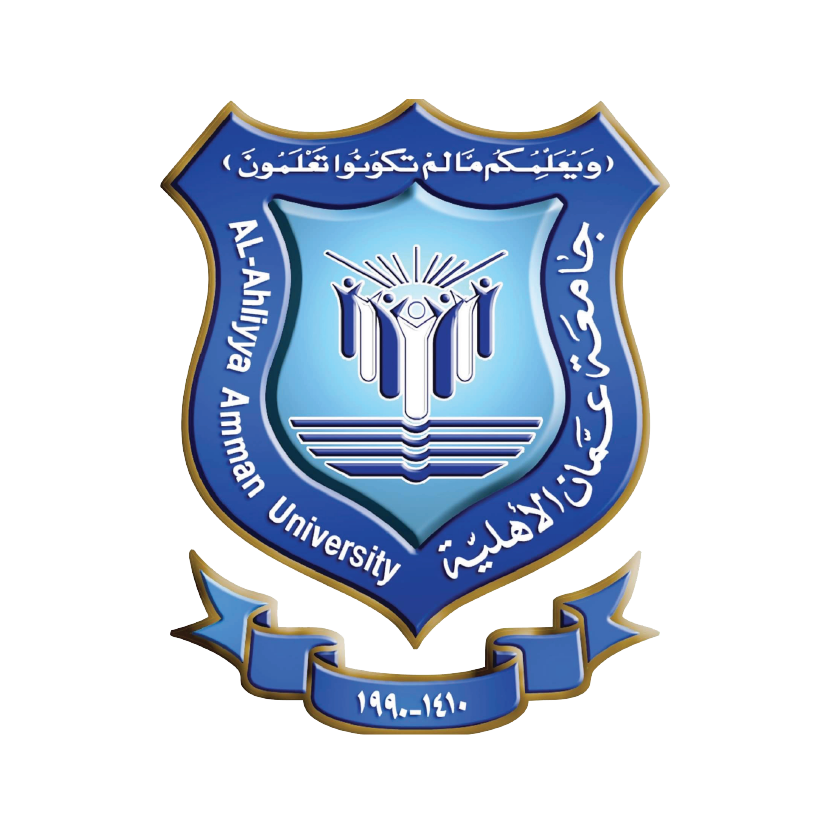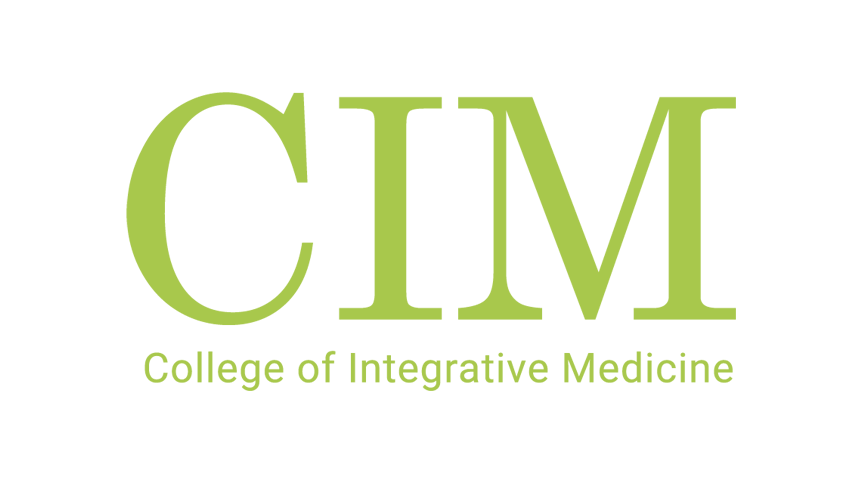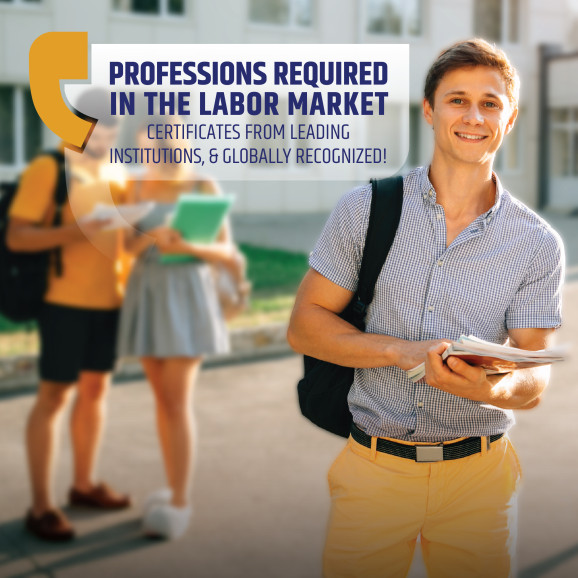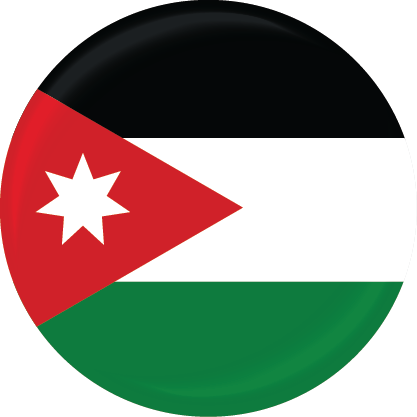Register Now! Please, fill in your personal details and we will contact you shortly
Equine Health and Nutrition Management
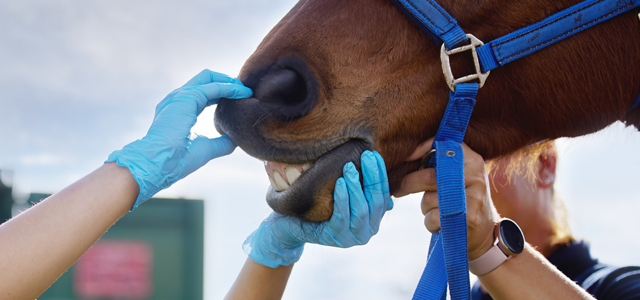
Audience
About the program
The needs of the horse are quite basic, but the pathways and chemical processes of nutrition are complex. The categories of essential nutrients are needed for all equines, but quantities are individual and are dependent on the needs. Carbohydrates, water, protein, fats, vitamins and minerals are the basis of an equine diet. Carbohydrates are the horse’s source of energy and are provided in the form of sugar, starch and fiber, these will come from sources such as forage, grass and concentrated horse feed. Water is essential in many biological reactions. Protein is a major component of tissues and is utilized in muscle growth. Fats are required to provide additional energy and also for vitamin absorption. Vitamins are needed for a host of functions, such as metabolism. Minerals assist in many chemical reactions in the body. An inappropriate diet will lead to unbalanced ratios of all requirements, causing deficiencies and possible toxicity. Health issues will become apparent depending on the diet’s nutritional value, performance will diminish, and musculoskeletal disorders may be noticed.
This course will cover all aspects of equine nutrition.
Initially, it will review the concept of ‘energy’; what it is, why it is important to horses, how it is measured and how it is stored.
The course will then move on to look at the main nutritional components of an equine ration, ie., ‘the generators of energy’, namely, carbohydrates, proteins, lipids (fats) and water. These will be studied in turn, with consideration given to why they are important in an equine ration, what benefits / disadvantages they play in the ration and how, and where they are metabolized in the equine body.
The third module will then review the micro-nutrient element of the equine ration, namely, vitamins and minerals. These will be examined in turn, including a full discussion and review of their role in the equine body and diet; where they are found; and why they are important.
The fourth module moves on to consider various equine feedstuffs, namely, forages, concentrates and supplements. Participants will consider each of these in turn, focusing on their role and importance in the body.
Module five will build on this and will consist of an overview of the most common feeds available in the marketplace; including a review of recent manufacturing and marketing trends.
Module six moves on to cover the broad subject of ‘equine rations’, looking at typical examples of an equine ration, what they consist of, what constitutes a ‘balanced ration’, how is this calculated and finally, why and how rations are adapted for different equine disciplines.
Finally, module seven will close with a review of dietary issues, such as EGUS (Equine Gastric Ulcer Syndrome) and colic. It will also consider various clinical nutritional diseases such as laminitis, PPID / Cushing’s Disease and EMS (Equine Metabolic Syndrome). The aim is to give participants an understanding of what issues can occur when the principles of equine nutrition are overlooked.
The final element of the module also considers recent developments in clinical nutritional research and specifically looks at the growing number of cases of both PSSM (Polysaccharide Storage Myopathy) and IBD (Irritable Bowel Disease).
At the end of the course, participants will have gained a strong knowledge in all areas of equine nutrition.
The course will also discuss the intrinsic and extrinsic elements that effect health and performance in horses. A variety of internal disease processes will be covered, but the focus is on the practical management of health concerns. Special focus will be applied to sports injuries and diseases affecting equine performance. A range of injuries associated with different activities will be studied. This includes discussion of up-to-date diagnostic procedures, veterinary and complementary therapies, rehabilitation methods and prevention. The use of drugs and nutraceuticals as therapeutics and as performance enhancers will be analyzed.
The principles of infective agents and how they cause disease will be covered, as well as biosecurity measurements in case of infection outbreaks. For that, methods of quarantining and isolating horses are discussed including the importance, and processes to ensure, effective hygiene. Principles of immunology and vaccination will be also covered along with the mandatory and optional vaccinations for national and international travel and racing/competitions. Students will develop practical skills to recognize a health and unhealthy horse, identify teeth and hoof health and develop skills to keep the general equine health. Principles of nutrition and grassland management will be covered with health and performance in mind.
This program will help you also understand the importance of diseases in equines and the efficacy of the methods of equine disease prevention and control, learn the major causes of infectious and non-infectious diseases in horses, discuss sports injuries and performance limiting diseases in equine and analyze the efficacy of veterinary treatments, other therapies and rehabilitative techniques that are available for equine diseases.
Learning Units:
· Energy Generation; What is energy?
· The Macronutrients; Carbohydrates, Lipids (fats), Proteins, Water.
· The Micronutrients; Vitamins and Minerals.
· Feedstuffs; Forages, Concentrates and Supplements.
· The Feed marketplace; What is available.
· What makes a balanced equine diet and looking at practical solutions for successful feeding.
· Rationing and how to calculate / formulate a balanced equine ration.
· Dietary Issues / Clinical Nutritional Diseases; Equine Gastric Ulcer Syndrome (EGUS), Colic, Laminitis, PPID/ Cushing’s Disease and Equine Metabolic Syndrome (EMS) and recent advances in equine nutritional diseases, such as PSSM and IBD.
We have introduced colic and gut health management into this healthcare series of training programmes because of the high incidence of colic among all horses. Colic is a definite emergency that requires quick decisions and, more than not, Veterinary intervention. Surgery is often required, and survival rates after surgery are usually not that good with possible recovery complications in relation to the anesthesia, the actual surgery, the size of lesions etc. Colic can be avoided through better health management practices.
 Certificates
Certificates
(Diploma) Certificate from Al-Ahliyya Amman University – the Training and Consulting Department, the International College of Integrative Medicine (CIM), Dubai Racing Club, Dubai Equestrian Club and the International Organization for Complementary Medicine (CMA) located in London, UK, which qualifies the graduates to work all over the world.
Syllabus
DAY 1 | |
LECTURE THEORY | SUBJECT |
1 | The principles of nutrition Routine health care. Recognition of normal and abnormal parameters TPR (temperature, pulse, respiration) Causative agents and routes of transmission for a number of common diseases Legislation regarding infectious diseases, quarantine, biosecurity |
2 | The digestive system and microbiome |
DAY 2 | |
LECTURE THEORY | SUBJECT |
1 | Nutrient specifications and digestibility |
2 | Grassland, forage and water |
DAY 3 | |
LECTURE THEORY | SUBJECT |
1 | Feedstuffs and supplements |
2 | Basic ration formula |
3 | Students complete practical workbooks |
DAY 4 | |
LECTURE THEORY | SUBJECT |
1 | Body condition scoring Hoof care |
2 | Nutritional disorders |
LECTURE PRACTICAL | SUBJECT |
1 | Body condition scoring and weighing |
2 | Feedstuff in use – forage, concentrates, supplements |
DAY 5 | |
LECTURE THEORY | SUBJECT |
1 | Equine parasites |
2 | Racehorse specific nutrition |
3 | Broodmare specific nutrition |
DAY 6 | |
LECTURE THEORY | SUBJECT |
1 | Compare case studies of other specific nutritional requirements – youngsters, ageing horses eating for weight gain or weight loss etc. Management of the sick horse: Hygiene, box rest, bedding, stable, air quality, feeding, isolation procedure, quarantine and isolation, management of the sick horse, administering medication, storing medication, methods of administration |
2 | Discuss final theory assessment |
DAY 7 | |
LECTURE THEORY | SUBJECT |
1 | Paddock management |
2 | Equine colic and gut health management |
3 | Final theory assessment |
DAY 8 | |
LECTURE PRACTICAL | SUBJECT |
1 | Palpating for gastric problems and overall condition |
2 | Demonstration of massage techniques and acupressure points for a colic occurrence |
3 | Checking teeth |
DAY 9 | |
LECTURE THEORY | SUBJECT |
1 | Vaccines and Vaccination Lameness: classification. Most common causes of lameness in horses: laminitis, tendonitis, desmitis, navicular syndrome, back pain |
2 | Respiratory disorders: RAO, Arrhythmias, equine flu, strangles |
3 | Digestive disorders Cardiovascular and endocrine disorders Neurological disorders Integument disorders Use of complementary medicine in equine practice |
DAY 10 | |
LECTURE PRACTICAL | SUBJECT |
1 | Palpation of the limbs, passive movement of joints, recognition of signs of pain and injury on the musculoskeletal system |
2 | diagnostic imaging, radiography, ultrasound, thermocamera. |
3 | Respiratory and cardiovascular assessment for the racehorse stables assessment: ventilation, temperature, water temperature, light Tack inspection, types of saddle, bits and bridles Shoeing procedure, types of shoes |
Curriculum according to Modules:
Module 1: Energy Generation: What is energy?
The objectives of this module are to explain / review:
energy generation,
how it links with the equine respiratory system,
different energy sources
Introduction to Energy Generation – how is energy generated in the equine body. Energy generation in relation to oxygen. Overview of basic energy sources.
Module 2: Examination of Macronutrients
The objectives of this module are to explain / review:
macronutrients.
Examination of macronutrients – Carbohydrates, lipids, proteins, water.
Module 3: Examination of Micronutrients
The objectives of this module are to explain / review:
micronutrients – vitamins,
micronutrients – minerals.
Examination of micronutrients – vitamins. Examination of micronutrients – minerals.
Module 4: An introduction to feedstuffs – Forages, Concentrates and Supplements
The objectives of this module are to explain / review:-
Forages – What they are, why they are important in the equine ration,
Concentrates – What they are, why they are important in the equine ration,
Supplements – What they are, why they are important in the equine ration.
Examination of forages – What they are, how they are metabolized, why they are important in the equine ration. Examination of concentrates – What they are, how they are metabolized, why they are important in the equine ration. Examination of supplements – What they are, how they are metabolized, why they are important in the equine ration.
Module 5: Examination of the Feed Marketplace
The objectives of this module are to explain / review:
What type of feeds are available on the marketplace,
Typical manufacturing trends.
Examination of the feeds available in the marketplace and overview of the equine feed industry, including recent advances.
Module 6: A balanced equine ration: What it is, how to calculate a ration and how to feed successfully
The objectives of this module are to explain / review:
Review what constitutes a ‘balanced equine ration’,
Determine how this is calculated,
Adjusting feeding for different disciplines
Examination of what constitutes a ‘balanced equine ration’; overview of how this is calculated. Adjusting equine rations in line with different equine disciplines.
Module 7: Overview of typical nutritional related issues, clinical nutritional diseases, and recent advances in equine nutritional diseases
The objectives of this module are to explain / review:
An overview of nutritional related issues – such as Equine Gastric Ulcer Syndrome (EGUS) and Colic,
An overview of clinical nutritional diseases – such as Laminitis, PPID/ Cushing’s Disease and Equine Metabolic Syndrome (EMS).
Recent advances in research / diagnosis of equine nutritional diseases such as PSSM and IBD.
Examination of what nutritional issues / problems can occur, including Equine Gastric Ulcer Syndrome (EGUS) and Colic. Examination of what clinical nutritional diseases exist, including laminitis, PPID/ Cushing’s Disease, Equine Metabolic Syndrome (EMS). Examination of recent advances / diagnosis / treatment of equine clinical nutritional diseases, including PSSM (Polysaccharide Storage Myopathy) and IBD (Irritable Bowel Disease).
Register & Pay
Dean

Dr. med. Ldo. med. Álvaro Rubio
Citizenship:
Spaniard and German
FIELD OF ACTIVITY
Adult Cardiac Surgery - Cardiac Surgery Consultant
Vascular Surgery - Vascular Surgery Consultant
Pediatric Cardiac Surgery
Intensive Care Medicine
QUALIFICATION
Universitas Extrematurensis, Spain
Justus Liebig University, Germany
Cardiac Surgery Consultant - Bavarian State Chamber of Physicians, Munich/Germany
Vascular Surgery Consultant - Baden-Württemberg State Chamber of Physicians, Freiburg/Germany
Intensive Care Medicine Consultant - Baden-Württemberg State Chamber of Physicians, Freiburg/Germany
ADDITIONAL QUALIFICATION
Specialist in Radiation Protection
Certificate Clinical Homeopathy
MEMBERSHIP - SCIENTIFIC AND PROFESSIONAL SOCIETIES
CSN - Cardiothoracic Surgery Network
BDC - German Professional Association of Surgeons
DGTHG - German Society for Thoracic, Cardiac and Vascular Surgery
Association of Cardiac Surgeons
European Society of Cardiology
INVESTIGATION AWARD
The Pierre Grondin Award 2007
CMA President

Jayney Goddard, MSc, FCMA, FBSLM, Lic.LCCH, Dip.ACH, FRSPH
President - The Complementary Medical Association, London, UK
Jayney Goddard is President of The Complementary Medical Association (The CMA) which is the world's largest professional membership body for complementary medicine (CM), and she is widely regarded as one of the leading experts on complementary medicine and natural healthcare. Jayney has a vast depth of knowledge across the entire field of complementary medicine and can always be relied upon to provide substantiated research data during any interview, lecture or written work.
Jayney is a Fellow of the Royal Society of Medicine and a Fellow of the Royal Society for Public Health. She has a Master of Science post-graduate degree from the University of Central Lancashire and began her doctorate in January.
She was recently awarded the Complementary and Natural Healthcare Expo Award for Outstanding Contribution to Complementary Medicine - which was judged by a panel of respected complementary medical professionals and a group of high-profile captains of industry coming from backgrounds as diverse as banking, insurance and entertainment.
She has a busy practice (UK, USA and Skype) where she works uses a range of complementary medical approaches with her patients, including homeopathy, psychotherapy, nutrition, herbal medicine, Mind/Body medicine and hypno-analysis. Jayney's special clinical interests include auto-immune disease and natural anti-ageing/rejuvenation strategies.
Jayney is editor of "With Our Complements", the Journal of The Complementary Medical Association and she is a high-profile contributor to print and broadcast media.
Jayney is the complementary medical expert for various newspapers and magazines and is a regular guest on television and radio when expert opinion is required on any aspect of complementary medicine and natural health care. Adept at phone-in “open clinic” type broadcasts, Jayney is always a popular guest. She was the Discovery Channel's complementary medicine expert and provided all complementary medical content for the Granada/Boots PLC joint venture "The Wellbeing Channel". A prolific writer, her most recently published books include the international number one bestseller "Rewind Your Body Clock - The Complete Natural Guide to a Happier, Healthier, Younger You (Watkind UK / Penguin USA and Rest of world / Audiobook by WF Howes, narrated by Jayney Goddard).
Jayney has also authored two books on pandemic 'flu: the critically acclaimed "The Survivor's Guide to Swine Flu: The Complementary Medical Approach", "The Survivor's Guide to Bird Flu: The Complementary Medical Approach" and also "Complementary and Alternative Medicine: The Scientific Verdict on What Really Works", edited by Jayney and published by Collins. Jayney also edits The CMA's highly informative weekly e-Newsletter. Jayney writes the monthly Natural Anti-ageing column for Natural Health magazine and is credited by them as "The UK's leading natural anti-ageing guru".
Jayney testified for the USA's "White House Commission on Alternative and Complementary Medicine" in order to help the USA rationalize complementary and alternative medicine and all her recommendations were accepted unanimously. In the UK, Jayney is The CMA representative for the Parliamentary Group for Complementary and Integrated Medicine and she is active globally, assisting governments worldwide to rationalise their approach to ethical, responsible complementary medicine.
Jayney lectures at various medical colleges and to faculty and students at Cambridge University in the UK and the University of Miami School of Medicine in the USA. Jayney has taught, as Visiting Professor, on the Masters course at The Graduate Institute in Connecticut, USA, where faculty colleagues include Dr Bernie Siegel, Professor Rupert Sheldrake and Dr Steve Horowitz.
Jayney's Personal Mission
To raise the profile of Complementary Medicine and Integrative Healthcare so that the public and the conventional medical profession accept that these approaches are a viable health option when delivered by properly trained, professional practitioners and integrative medical doctors.
To create an environment where practitioners of excellence are regarded as professionals - true experts in their field - and are accorded the respect that they so rightly deserve.
To ensure that all those who wish to join the profession can gain access to bona fide CM (complementary medicine) colleges which offer truly excellent training.
To ensure that the public understands what constitutes outstanding complementary medical health care and has ready access to practitioners of excellence.
Memberships:
Fellow; Royal Society of Medicine,
Fellow; Royal Society for Public Health,
Founder and Co-Chair; British Society of Lifestyle Medicine
Advisory Board Member; Health Food Manufacturers Association,
Advisory Board Member; "camexpo",
Advisory Board Member and Founding Contributor; Integrative Healthcare Symposium,
Equity
Accreditation

The college of Integrative Medicine in Al-Ahliyya Amman University - Training and Consulting Department is the first college to teach natural medicine study programs in the Arab world, and is recognized by the Jordanian higher education Council, for it's excellence in Academic studies and research. It's the only college that grants diploma certificates accredited by the Jordanian higher education council.
Students reviews
About The College
The college of Integrative Medicine in Al-Ahliyya Amman University - Training and Consulting Department in collaboration with CIM is the first college in the Arab world offering Natural Medicine studies. is the first private university established in the Hashemite Kingdom of Jordan by a decree of the Ministry of Higher Education and Scientific Research in 1989.
Al-Ahliyya Amman University

Al-Ahliyya Amman University is the first private university established in the Hashemite Kingdom of Jordan by a decree of the Ministry of Higher Education and Scientific Research in 1989. The University opened its doors in 1990 with three faculties namely the Faculty of Law, the Faculty of Arts & Sciences and the Faculty of Administrative & Financial Sciences. In the following year, the Faculty of Pharmacy & Medical Sciences and the Faculty of Engineering were established. In 2001 AAU founded the Faculty of Information Technology and inaugurated the Faculty of Nursing in 2005. In 2010, AAU introduced the Faculty of Architecture and Design which was approved to include Architecture, Graphic and Interior Design specializations. By doing so, the number of faculties became eight offering 29 Bachelor programs. Moreover, the University offered eight Master’s programs the first of which was the Master Program in Law which in 2005 was part of the Graduate Studies. AAU provides students with distinguished Graduate Studies Programs and with distinctive Faculty members. To meet the administrative, financial and technical working needs in the University environment, AAU has provided qualified administrative cadres in various administrations and departments which aim to provide the best services to the university community of students and their parents as well as to the academic staff. Thus, twenty-seven years have passed since the inception of AAU in which it continued providing the local and regional markets with elite graduates who occupied important positions in local and regional institutions whether in the public or private sectors. Moreover, a number of AAU graduates have pursued their Graduate Studies in the most prestigious European and American universities. Additionally, a number of them are working in AAU and other Jordanian, regional and international universities. It is worth mentioning that the number of graduates in the various specializations that AAU offered reached (24.338) male and female students.
Al-Ahliyya Amman University is committed to develop and apply the "Quality Assurance Standards in Higher Education Institutions" and to follow any other adopted quality standards by investing human and physical energies to produce an academically and morally outstanding generation who is able to deal with the requirements of the time and to keep up with the new developments efficiently and effectively. This act aims to meet the needs of students, and to enable the University to play its role in promoting academic research, community services and to depict Jordan as a distinctive educational destination at the regional level.
CMA

The Complementary Medical Association, The world’s biggest & leading association of research, academic training&recognition of colleges & therapists worldwide in the fields of complementary & integrative medicine.
Mission & Objectives
The Complementary Medical Association's (The CMA) primary aim is to promote ethical, responsible, professional complementary medicine to the public and the medical profession.
We believe that by promoting The CMA and its Registered Members & Colleges in all categories, though the media and online in a hugely high-profile manner, we are able to help the public and doctors to realize that complementary and integrative medicine is - when delivered safely and ethically - a viable and highly desirable form of healthcare. In addition, here at the CMA, we are totally dedicated to representing "the professional face of complementary medicine" and by promoting research, education and knowledge in the field, we will help to stimulate demand for the medicine of the 21st century and beyond.
The CMA is great news for professional practitioners, ethical colleges and patients who demand and expect excellence in every aspect of treatment.
What is the CMA?
The CMA is a not-for-profit organization which means that any funds we raise, through membership fees, book, training and product sales or donations are invested straight back into the organization.
A great part of our work consists of referring public and conventional medics alike to CMA registered practitioners so that they can be assured that treatment will be delivered
by a highly qualified, insured practitioner who adheres to a strict Code of Ethics and disciplinary procedure. We call this the "CMA Referrals Scheme".
In addition, we are able to help members of the public who wish to train in the complementary medical field to access our Registered Training Schools and Colleges. We provide assistance to Schools who wish to have their courses Registered and Accredited by the CMA.
We work closely with the conventional medical profession as we ultimately believe that the most important person after all, is the patient, and we believe that by presenting the patient with good, accurate information about complementary medical approaches they can make responsible informed decisions about their own health care. It is important to remember that both complementary and conventional medicine have a great deal to offer - when used appropriately, justifiably and responsibly. Ultimately, the freedom to choose one's own health care is a vital human right which should be protected.
Our History
The CMA was established in early 1993, by Jayney Goddard, in response to the overriding lack of public and medical knowledge about the complementary medical profession. During the initial two years we devoted our time to performing the market research that would indicate whether there could be a viable way of raising the profile of ethical, responsible complementary medicine. It was vital to establish and justify whether "yet another organization" needed to exist in the already saturated complementary medical organization field.
We spent a long time analyzing the entire arena and found that nothing was being done at that time by any membership body or organization to promote practitioners
or training schools in a high profile, professional manner.
Furthermore, at that time, complementary medicine had a very unprofessional profile; somewhat akin to a cottage industry. This was a sorry state of affairs and it became rapidly apparent that The CMA needed to exist if professional complementary medicine were to stand a chance.
Here at The CMA we are a dedicated team of committed professionals (we're all qualified healthcare practitioners) and we are absolutely serious about achieving our mission. We have always had a commitment to making sure that our Members can contact us easily and will always be able to get through to a real person at the end of the phone line. In addition, our e-communications are exceptionally effective and we are able to disseminate important information to our Members extremely rapidly and efficiently.
Where are we now?
The CMA opened its doors to members at the beginning of 1995 and to date, The CMA represents the interests of thousands of practitioners in various categories - including students and 180+ Training Schools/Colleges with additional organizations approaching us regularly. We also have another membership section, "Friends of the CMA" which comprises a variety of supporters, all of whom are keen to support the work of the CMA.
The CMA has a high media profile and we constantly work with major media organizations.
We are committed to cultivating a high media profile, through which we achieve in excess of ten individual media exposures per week including TV, radio, magazines, newspapers and the Internet. Our estimated monthly reach is circa 650,000 individuals.
We are committed to thinking creatively when it comes to promoting our members and we are dedicated to working creatively when promoting our Member's interests - just one example of this is that The CMA has - over the years - even undertaken extremely high-profile promotional campaigns utilizing advertising space on London Underground trains and Docklands Light Railway.
What We Do
q Continuing Professional Development (CPD) Hugely important for us all in this profession. We offer practitioners lots of opportunities to keep their professional skills up-to-date with courses, seminars, ongoing tutorials and more by the leading lectures of UK & Europe.
q Membership ID Card, Certificate
It is vital that practitioners display their CMA certificate within their office or practice rooms to confirm their
Membership of this esteemed organization. We also
12
provide them with an ID card, which many of our Members find useful when on external site visits.
q LondonBoroughsSpecialTreatmentExemptedStatus Certain categories of practitioner are subject to requiring a “Special Treatment License” if they work in London and other cities. These licenses cost up to £1000+ and practicing without one leaves the practitioner open to a fine of up to £5000+. By registering with the CMA, after we approve their professional level and training, they are covered under our umbrella exemption – saving you thousands – and protecting them and their practice.
q CMA weekly e-Newsletter
This fantastically informative email brings practitioners the very latest news and research from around the world on all aspects of complementary medicine, natural health and wellness – and relevant conventional medical findings too.
q CMA Training / Courses
The CMA is dedicated to keeping our Members at the top of their profession, to this end we consistently offer ongoing training – with a particular emphasis on practice and training school development. CMA Members benefit from hugely discounted rates for these courses, compared to non- Members. CMA is an academic supporter of complementary medicine colleges, which meet the high criteria of the CMA, and after examining in-depth the curricula and study conditions that the college grants to students, the CMA grants a certificate of recognition to the college.
q Liaison at governmental level representing All CMA Members
The CMA is a Member of the All-Party Parliamentary Group for Complementary and Integrative Medicine in UK. This means that we are representing practitioners’ interests at Governmental level – and can shape policy within this field to support our Members. CMA Members are allowed to attend these meetings at the House of Commons by arrangement.
q Webinars, Seminars, CPD workshops and further qualifications
The CMA liaises with various respected organization who are offering further training to our Members. If we believe that these trainings are of value, we negotiate special rates for our Members as part of our Membership Benefits package.
In addition to each certificate that the graduates receive from AUEDI, each graduate also receives an international certificate from CMA.
CIM

CIM, The international college, is the leading college of Integrative Medicine worldwide. CIM accomplished a great achievement in recent years by integrating complementary medicine with traditional Western medicine, and this is certainly thanks to the most famous specialists who work at CIM. CIM College has a university atmosphere and includes professional training, exclusively in medical centers and hospitals.
CIM has relations with the most famous universities and colleges of Natural Medicine from all over the world.
At CIM, you will find large classrooms equipped with the latest and newest teaching aids, an advanced computer lab, spacious gardens, resting rooms.
The most important thing at CIM is the family atmosphere and the personalized, individual attention given to students by all lecturers, especially to make learning more comfortable.
CIM relies on qualitative education programs and cares about selecting the best lecturers and giving individual attention to each student.
CIM College has a lot of branches worldwide, on of the most important is a branch in Dubai, and under the direction of the German-Spanish Professor Alvaro Rubio, who is the most famous heart surgeon in the world and also specializes in natural medicine.
The branch in Dubai is considered the 1st college of complementary medicine in the Gulf countries. It offers additional and exclusive study programs, such as complementary medicine for equines, which are taught by the most famous lecturers from London, UK. And the branch of Al-Ahliyya Amman University in Jordan, one of the best universities in the world and the #1 Jordanian university according to The Times ranking in terms of the impact of universities, which is considered the 1st college of integrative medicine in the Arab world. It was established as a new college at the university under joint management by both parties, which makes CIM an international college well-respected all over the world, and the leading college in the world for the last 20 years.
CIM has internal monitoring committees that maintain a high educational level that students enjoy. The college is accredited by all the complementary medicine associations and by the European Natural Medicine Association as well. CIM offers scholarships to many deserving students and offers its graduates the possibility to complete their first academic degree (B.A.).
Every student gets his or her N.D. certificate at the end of their studies, which is considered the highest degree in the field of natural and integrative medicine worldwide. And exclusively for CIM college, each graduate receives a certificate from the Complementary Medical Association - CMA, which is located in London, UK.
The CMA is not only the world leader in academic research and training, but also gives accreditation to colleges and therapists worldwide, making it easier for graduates to work in this field all over the world.
